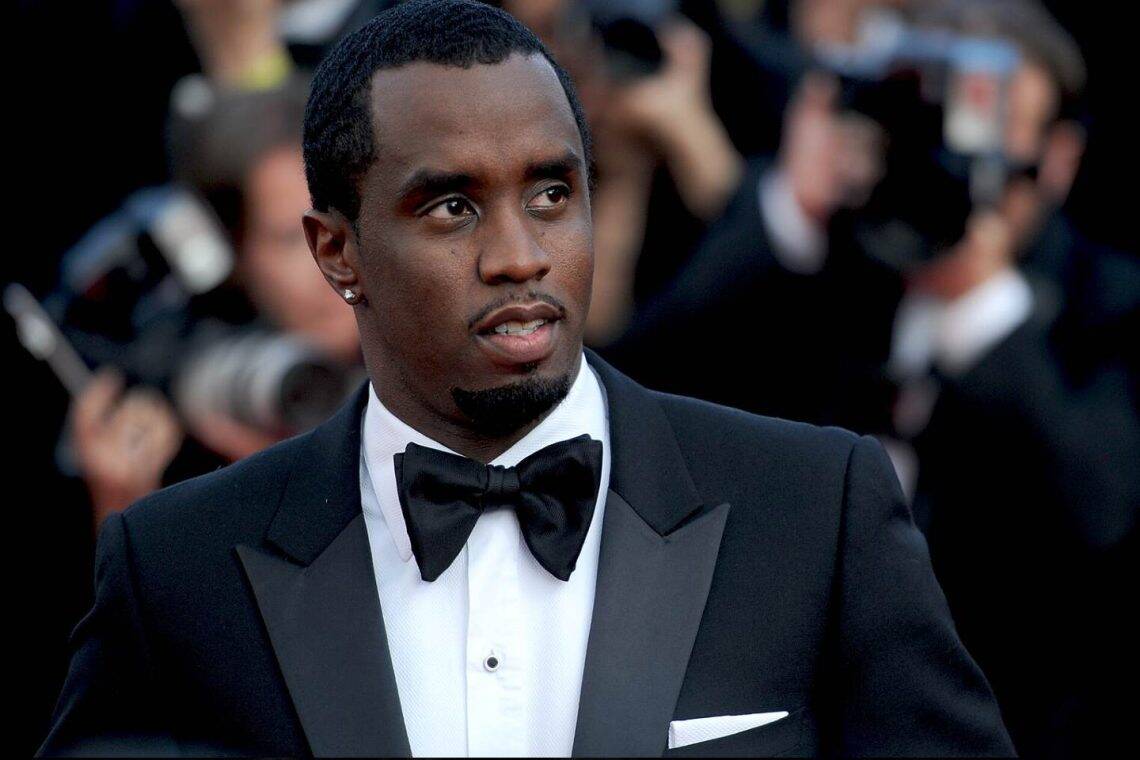In the dazzling facade of Hollywood, where fame often shields the powerful, a gavel fell on October 3, 2025. Sean “Diddy” Combs, once an untouchable music mogul behind Bad Boy Records, was sentenced to 50 months — more than four years — in federal prison for prostitution-related charges. Though acquitted of the more serious racketeering and sex trafficking counts, Combs faces a $500,000 fine and five years of supervised release — a verdict that exposed decades of alleged abuse, coercion, and exploitation.
As Combs tearfully addressed the court, apologizing to victims, the world watched not just a celebrity’s downfall, but what many see as a turning point: accountability in entertainment. This reckoning is not isolated to Hollywood. In South Africa’s dynamic entertainment landscape — powered by amapiano, soap operas, and globally recognized films — scandals of corruption and abuse abound. Combs’s sentencing isn’t mere celebrity drama; it’s a wake-up call for South Africa’s industry, merging pop culture spectacle with urgent social critique.
The Diddy Saga: From Party King to Prison Cell
Sean Combs’ empire began to crumble under the weight of over 30 civil lawsuits alleging sexual assault, coercion, and violence dating back decades. Arrested in September 2024, the 55-year-old faced five federal charges. In July 2025, the jury found him guilty on two counts of transportation for prostitution, but acquitted him of racketeering conspiracy and sex trafficking. Reuters coverage confirms the split verdict, and the sentencing is widely reported.
At sentencing, Judge Arun Subramanian cited the “harm and trauma” caused and declined the defense’s plea for leniency. Reuters notes he added a fine of $500,000 and five years of supervised release. Combs’ magnitude of business and cultural influence could not shield him fully — his Bad Boy brand is now tarnished, and the future of his music catalog is uncertain.
Hollywood’s Reckoning: Power, Privilege, and Structural Flaws
Combs’ downfall is a chapter in Hollywood’s long, overdue audit. Since the #MeToo movement launched in 2017, over two hundred high-profile figures have been publicly challenged, exposed, or removed — from Harvey Weinstein (sentenced in 2020) to others facing civil suits and career collapse. The industry, valued at hundreds of billions of dollars globally, often hides behind charm and glamour even as misconduct festers behind closed doors.
Combs’ case suggests a shift: judges and juries are less swayed by celebrity status. Reuters’ reporting indicates that the court considered credible testimony about coercion and exploitation, even when the more extreme charges did not hold. The fallout already includes brands cutting ties, streaming services pausing catalogues, and industry watchers calling for more oversight over nondisclosure agreements, ethics training, and contractual integrity pledges.
Mzansi Mirrors: Corruption, Abuse, and Culture in SA’s Entertainment Scene
South Africa’s entertainment sector — a multi-billion-rand industry exporting artists like Black Coffee and films like District 9 — is not immune to scandal. But where Hollywood’s reckoning centers on sexual abuse and coercion, many SA controversies stem from corruption, public funding misuse, and nepotism.
In 2025, the National Film and Video Foundation (NFVF) faced intense criticism over nepotism and mismanagement. An exposé revealed that internal connections, rather than merit, appeared to govern funding allocations, starving independent filmmakers of resources. IOL reported the scandal. The NFVF’s budget amounts, and the opacity in grant distribution, lead critics to liken it to a lottery system for the connected.
Lottery corruption has also ensnared celebrities. Reports in 2024 revealed that infamous payouts from the National Lottery Commission, routed through shell NGOs, benefitted some public figures. While not all allegations have been proven in court, public outcry was strong, and #LotteryLoot trended on X.
Sexual abuse allegations echo the Diddy narrative in troubling ways. In 2024 and 2025, SA figures such as developmentally controversial rap duos and influencers have faced renewed claims of grooming, assault, and harassment. Meanwhile, the decision to host Chris Brown in SA in late 2024 drew protests over normalization of performers with sexual misconduct histories — a timely reminder that celebrity platforms can become battlegrounds for social values.
Lessons from the Limelight: Toward a Safer, More Accountable SA
Diddy’s 50-month term offers valuable templates for Mzansi’s path forward. First: victim-centered reform. Just as Hollywood productions now use intimacy coordinators and mandatory consent clauses, SA’s film sector (including NFVF funding bodies) could impose ethics audits and enforce survivor protection standards.
Second: regulatory mechanisms. South Africa’s media regulator (ICASA) and cultural agencies might consider a “Celebrity Conduct Code,” tying public grants or broadcast licenses to compliance with transparency and conduct standards.
Third: cultural leverage through social media. Platforms like X and TikTok have animated SA hashtags like #LotteryLoot, #AmINext, and calls for “MzansiMeToo.” These digital movements pressure institutions and compel unions (e.g. the Creative Workers Union) to fund survivor support and demand ethical enforcement.
Finally: global solidarity and legacy accountability. Diddy’s case reminds us that influential Black creators can be both towering and fallible. SA’s stars should be held to higher account not in spite of stature, but because accountability preserves legacy. A 2025 Auditor-General report warned that unchecked corruption “normalizes” abuse — now is the time to reset that norm.
A New Dawn or More of the Same?
From Diddy’s courtroom tears to Pheto’s denied payouts, these scandals strip away glamour, revealing industries where power can prey on the vulnerable. But in that wreckage lies possibility: Hollywood’s new guardrails offer South Africa a model. As TikTok stitches weave survivor stories into amapiano rhythms, consumers and creators are no longer passive observers — they are agents of change.
Will Mzansi heed the lessons? With 2025 projections placing streaming dominance at 80% of audience media consumption, the stage is set for icons built not just on fame, but on integrity. Diddy’s cage is a cautionary tale — let SA’s encore be one of justice, not just jam sessions. What scandal will you call out next? Join the conversation — accountability starts when voices rise.
Keywords: Diddy sentencing 2025, Sean Combs prison, South African celebrity scandals, Hollywood #MeToo, SA entertainment corruption, lottery graft, Mzansi accountability
